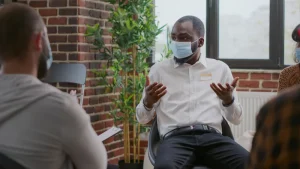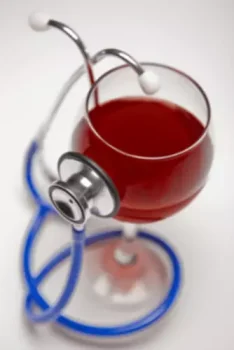06
202210 Tips for a New Start After Addiction

He has worked for Elevate Addiction Services for over 2 years, and is board-certified in family and addiction medicine. Currently, he is pursuing a fellowship in psychiatry and is affiliated with both UC Irvine and UC Davis. He is interested in General Medicine, Addiction Medicine, Mental Health, and End-of-Life Care (such as palliative and hospice care).
Can yoga and meditation really help after addiction recovery?
We want you to know that you can rebuild your life and create a brighter future with the right approach, support, and mindset. Here are a few strategies on how to rebuild your life for long-term recovery. Alta Mira offers comprehensive treatment for people struggling with drug and alcohol addiction as well as co-occurring mental health disorders and process addictions. Contact us to learn more about our renowned Bay Area programs and how we can help you or your loved one start the journey toward lasting recovery. Suddenly entering a drug and alcohol recovery program and becoming sober is difficult enough, but rebuilding your life after addiction can only complicate things more.
Reach out now and join our supportive
With counselors, medical staff, and peers in recovery available around the clock, those in rehab have immediate access to help when cravings, anxiety, or withdrawal symptoms strike. This constant support system fosters accountability and helps build the discipline rebuilding your life after addiction required to manage triggers and stressors in the outside world post-rehabilitation. Inpatient rehabilitation facilities offer 24-hour care, ensuring that individuals are not only physically safe but also supported during their most vulnerable moments.

Build a support system
Forgiving yourself will be a huge step in the right direction on your journey to learn to love yourself and reclaim your life after addiction. It will help you deal with the guilt and shame you may be feeling over your actions. Unaddressed, these feelings can eat at you and make it harder for you to learn to love yourself and reclaim your life after addiction.
Join Addiction Support Groups
- If you want to expand your friend circle, start by working on yourself.
- She shares her parenting journey on her website Beth & Coop, as well as on TikTok, YouTube, Facebook and Instagram, where she has built a community of more than 1 million people around disability inclusion.
- Then, you should have support from professionals, including your doctor, group therapy, and possibly a psychologist or counselor.
- Studies show that craving has a distinct timetable—there is a rise and fall of craving.
- But cravings don’t last forever, and they tend to lessen in intensity over time.
View our editorial content guidelines to learn how we create helpful content with integrity and compassion. Has been an expert in addiction medicine for more than 15 years. In addition to managing a successful family medical practice, Dr. Hoffman is board certified in addiction medicine by the American Osteopathic Academy of Addiction Medicine (AOAAM). Dr. Hoffman has successfully treated hundreds of patients battling addiction. Dr. Hoffman is the Co-Founder and Chief Medical Officer of AddictionHelp.com and ensures the website’s medical content and messaging quality.
Breaking the Shame Cycle by Viewing Relapse as an Opportunity for Growth

People don’t heal alone, and you don’t have to overcome early hurdles in recovery—such as drug cravings, urges to drink, or other triggers—in isolation either. Matt supervises all the clinical staff at various levels of care, long-term & short-term residential and IOP (Intensive Outpatient), at multiple facilities. On a regular basis, Matt collaborates with Elevate’s President, CEO, COO & Clinical Director to evaluate, plan and monitor program objectives and requirements. Dr. Krishna has 25 years of experience in the field of medicine.

Tips For Transitioning Back to Normal Life After Addiction Treatment

Recovery from addiction is not only possible, it is the rule, rather than the exception. S. National Survey on Drug Use and Health, more than 75 percent of people addicted to alcohol or drugs recover—their condition improves and substance use no longer dominates their life. It is often a long and bumpy path, and relapse is nearly inevitable—but that doesn’t spell the end of recovery.

Seeking ongoing treatment for your substance use disorder, mental health issues, or other underlying issues can be helpful if you find sober living challenging. During individual psychotherapy sessions, you’ll learn that even friends and family members who are happy that you’ve become sober still may not fully support your new lifestyle. They’re just afraid you’ll push your get clean ways and lifestyle onto them. They realize your lives are going in entirely different directions with them on the opposing end of the spectrum. Life after rehab will be tough enough adjusting to life and finding time to discuss in detail what is expected of you. But now that friends and family have given you the ground rules, moving forward, now you’ll have to follow through on it.
